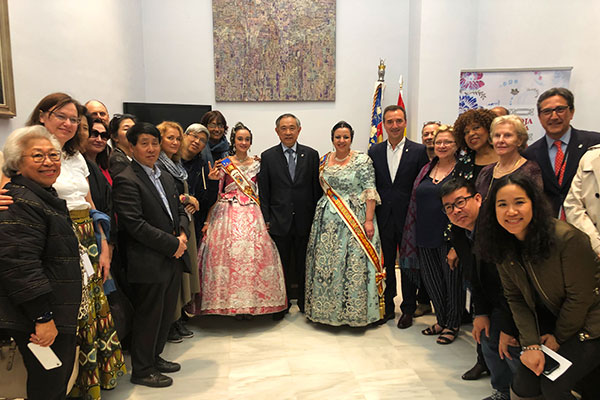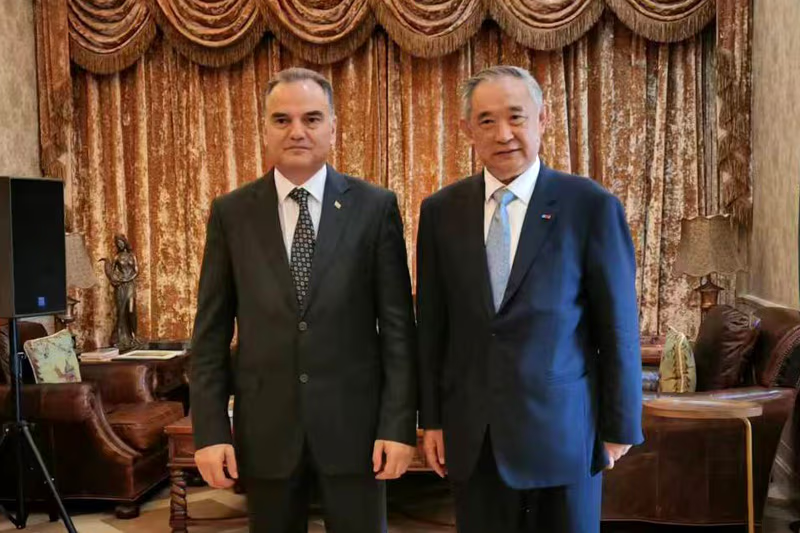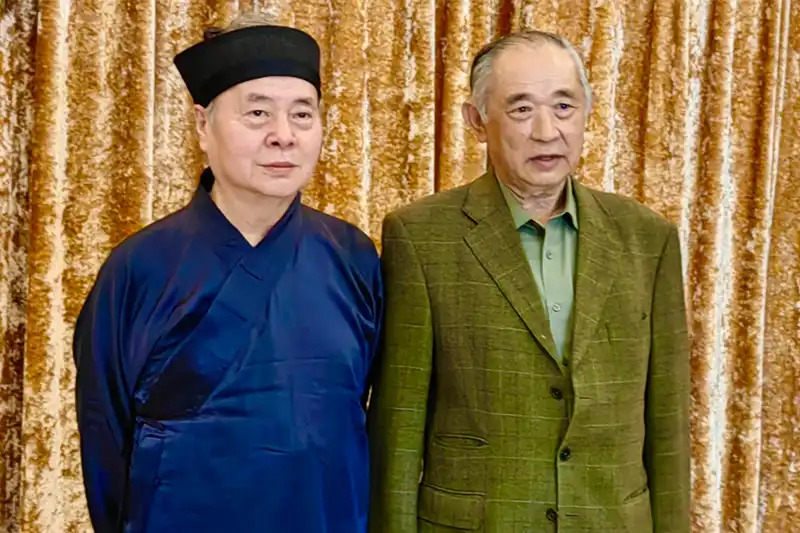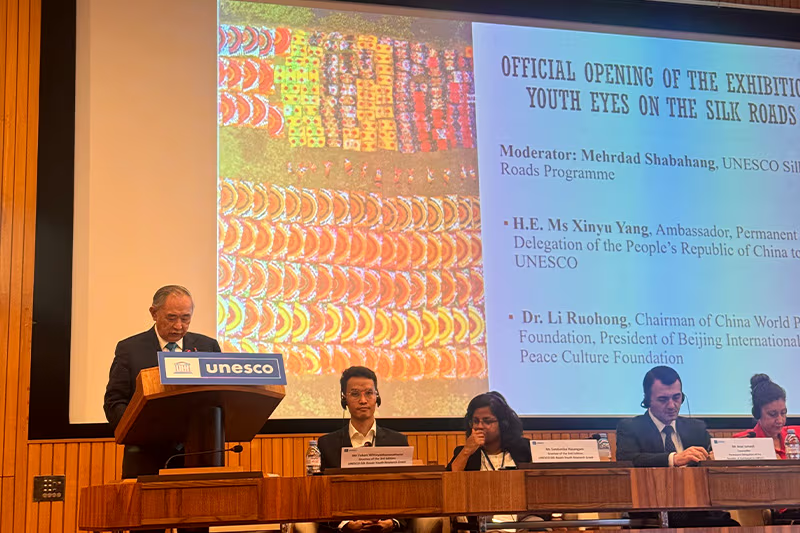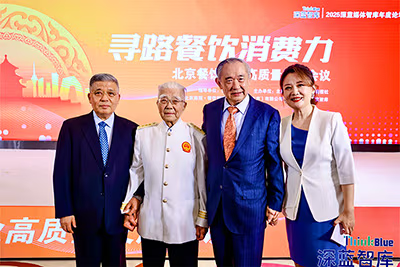
From March 14 to 17, 2019, an “Interactive Atlas of Cultural Interactions along the Silk Roads” expert meeting organized by UNESCO was held in Valencia, Spain.
Participants, including government officials, senators, representatives of international organizations, research institutions, colleges, and museums, from 26 countries, including China, U.K., Uzbekistan, Russia, Cambodia, Netherland, Thailand, the Republic of Korea, Japan, Australia, Bangladesh, Indonesia, Spain, Algeria, France, Brazil, Ghana, Djibouti, and Iran, attended the conference and conducted professional discussions on the historical and geographical features of textile, clothing, and costume exchanges along the Silk Roads, the relating raw material, design, craftsmanship, technological innovation, marketing, consumptions, tourism, exhibition, cultural dialogues and trade exchanges among nations. Participants made academic suggestions on intellectual property, Internet technology, media dissemination, online presentation, and resource pool. Professor Li Ruohong, president of China World Peace Foundation (CWPF), representatives of the Valencia regional government and UNESCO delivered remarks at the opening session. Prof. Li introduced progress on the Interactive Atlas of Cultural Interactions along the Silk Roads and Youth Eyes on the Silk Roads co-organized by UNESCO, CWPF and Beijing International Peace Culture Foundation (BJIPCF). He said that the greatness of the ancient Silk Roads lies in its time features of harmonious political atmosphere, national relations, peaceful and convenient business environment for cross boarder trade, and free exchanges of technology and information among nations with few barriers. The Silk Roads have left peaceful chapters with transcending value. The conference period coincided with the renowned Fallas festival in Valencia; the participants joined millions of tourists in watching fireworks and parades with local people dressed up in beautiful festival costumes. The mayor of Valencia city said at the farewell dinner that Valencia is the western end of the Silk Roads, which possesses rich world heritage and intangible cultural heritage. The city hopes to cooperate with China and facilitate the development of the Belt and Road.
